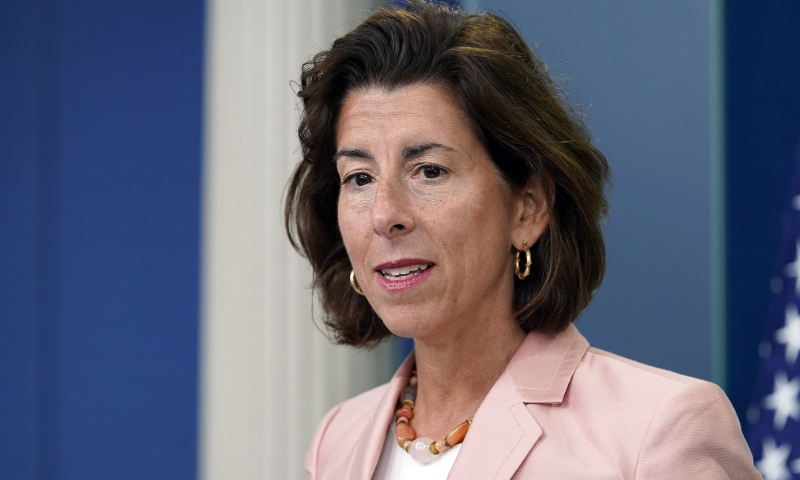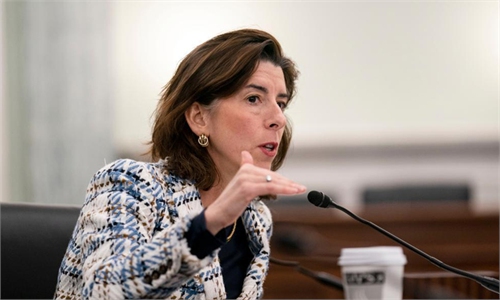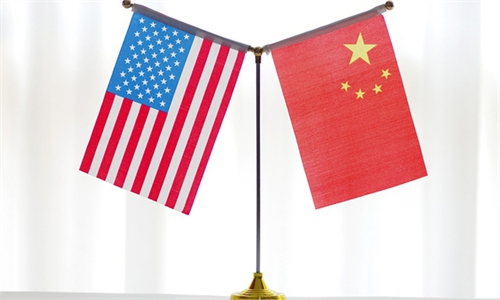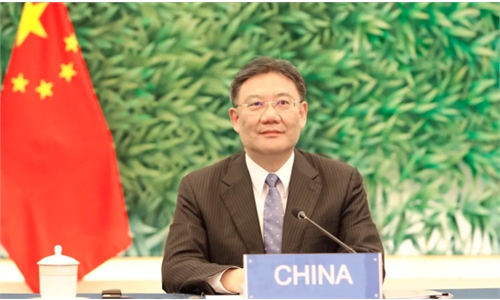Raimondo's visit to China can and should achieve tangible outcomes: Global Times editorial

US Secretary of Commerce Gina Raimondo speaks during the daily briefing at the White House in Washington, September 6, 2022. Photo: VCG
The news of US Secretary of Commerce Gina Raimondo's upcoming visit to China has been circulating for a long time. Now, the dates have finally been confirmed: from August 27 to 30. She will become the fourth US cabinet-level official to visit China since June. Compared to Secretary of State Antony Blinken, Treasury Secretary Janet Yellen and Special Presidential Envoy for Climate John Kerry, the department under Raimondo's management is primarily involved in the field of economic and trade, which represents the closest integration of China-US interests, the broadest cooperation, and also with the most specific disputes. As a result, her trip to China has gained special attention and anticipation.
Many people have noticed that Raimondo's visit to China is "at the invitation of Chinese Minister of Commerce Wang Wentao." In the overall chilly atmosphere of China-US relations, this move by the Chinese side maximizes the display of goodwill and sincerity. Economic and trade exchanges and cooperation have always been a central manifestation of the mutually beneficial nature of China-US relations. The economic and trade relationship has long been considered a "ballast stone" and "propeller" of the overall relationship between China and the US. However, against the backdrop of the US' comprehensive containment and suppression of China, Washington has made the economic and trade relationship with China its prime target for political attacks, taking to the extreme the essence of policies that harm others without benefiting itself.
Some of the economic, trade and investment restrictions imposed by the US on China not only violate international economic and trade rules and principles but are also highly irrational. In simple terms, these measures significantly damage the interests of the US itself.
In conclusion, whether considered from the perspective of US self-interest or from the standpoint of maintaining a healthy and stable China-US relationship, as well as safeguarding the security of the global supply chain and industrial chain, the restoration of the China-US economic and trade relationship should be a top priority. The effects of such restoration will be immediate and direct, serving as a natural breakthrough for getting bilateral relations back on track. This is also the aspect of Raimondo's visit to China that people are most eagerly anticipating. If Raimondo seizes the opportunity, she has a real chance of achieving concrete outcomes during this visit, and there is even the possibility of generating impact of special significance in this unique phase of China-US relations.
Of course, Raimondo can only act within her scope of authority, but as the US secretary of commerce, there are many tasks she could and should undertake, given the numerous issues that need correction in the current US economic and trade policy toward China. The same day that the US Department of Commerce officially announced Raimondo's visit to China, the US government unexpectedly lifted 27 Chinese entities from its "Unverified List." This move has been widely interpreted as a goodwill gesture from Washington toward China. However, on the other hand, it also indicates that the US' so-called "list" is like clay in Washington's hands — sometimes stretched out, sometimes shortened — being kneaded arbitrarily according to Washington's needs and preferences. In terms of expanding the cooperation list and reducing the negative list, Raimondo could actually play a more significant role.
According to informed sources cited by the American media, Raimondo had been hesitant about whether to make the trip because she is not sure whether it will bring positive results for US businesses. Now that her visit to China has been confirmed, it can be assumed that Raimondo has already thought through this issue. Frankly speaking, if Raimondo really hesitated because of this, it means her understanding of the China-US economic and trade relationship is not accurate or that she is too influenced by the "America First" mindset.
Raimondo's desire to bring positive results to American businesses is not only understandable but also deserves respect. As for what constitutes positive outcomes for American companies, it is necessary to distinguish immediate and local interests from long-term and overall interests. The former and the latter are often not consistent. Seeking to take all immediate advantages for oneself while leaving others at a disadvantage is not only unfeasible but also contradicts one's long-term interests and the broader common interests. If the overall environment of China-US economic and trade relations is damaged, all market entities, including a large number of American companies, will become victims. Conversely, if China and the US meet each other halfway and work together to improve this overall environment, it will have the greatest positive outcomes for American companies. This is also the biggest practical significance of Raimondo's visit to China.
The current atmosphere in Washington toward China is very bad, and any high-level contacts and communications between China and the US are under the interference of political noise. Raimondo's visit to China will not be an exception. In the past few days, there have been many voices in the US pressuring Raimondo, warning her not to be soft on China. To what extent these arguments will influence Raimondo remains to be seen, but we hope that she can remain professional, pragmatic and rational.



